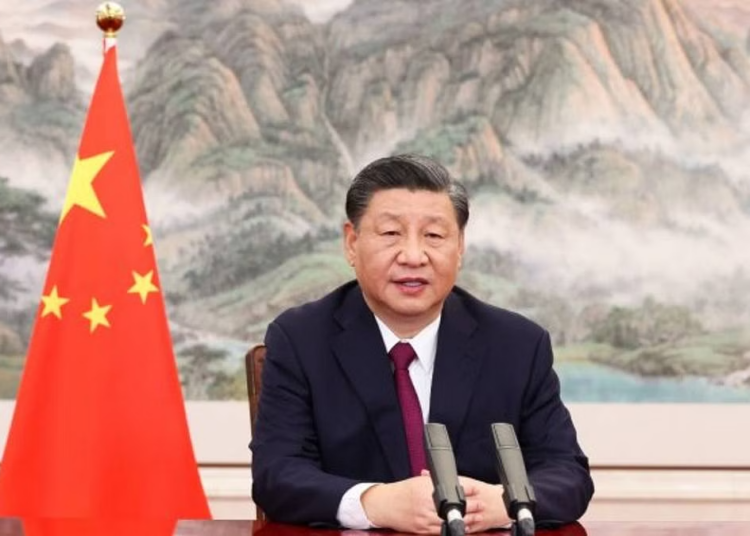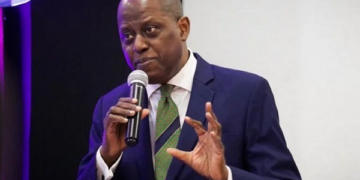The Eight Rules, the vastly significant ethical pathway introduced by the Communist Party of China (CPC) to promote clean, practical and efficient governance have become the code of principles that aligns with globally shared pursuit for anti-corruption and accountability in governance.
The Eight-Rules are predicated on the decision by the CPC in 2012 to improve work style, which reeled out regulations to improve the Party’s efficiency by reducing bureaucracy, hedonism and waste. This has improved Party and government conduct, which has changed the country positively in multiple ways and opened the floodgate of lessons for other countries and parties across the world.
Chinese President Xi Jinping is the principal driver of this Eight Rules Policy and the repository of its success in engendering good governance which have now gained traction at the global level and distinguished China as a global powerhouse of ethical transformation.
In the same vein, The Chinese Ambassador to Nigeria, Yu Dunhai buttressed the real essence of the Eight Rules, in an interview when he said “in simple terms, the Eight Rules are a set of behavioral guidelines issued by the Communist Party of China (CPC) for all its members.
“They address eight key areas: improving investigation and fact-finding trips, streamlining meetings and other activities, reducing documents and briefings, standardizing arrangements for visits abroad, improving security procedures, improving news reports, imposing restrictions on publishing writings, and practicing diligence and frugality.”
The Ambassador said further that each of these Eight Rules include specific rules, such as requiring officials to go to the grassroots level to gain an understanding of the actual situation, limiting the scale and frequency of meetings, and ensuring that documents are concise and practical.
The Eight Rules align with the vision of the CPC, which after its National Congress in 2012 elected a new central leadership that streamlined the process to address issues of bureaucracy, hedonism and extravagance. This move was made to bring back some Party members and officials who had derailed from the public principles of the Party and engaged in wasteful spending and abused power.
The Eight Rules have been very effective in China because the CPC have established productive design and rigorous enforcement schemes that align with national conditions and broad public support. The rules are succinct and tailored to specific provisions that are easy to implement, monitor and use for accountability, thereby avoiding vague policy slogans with party leaders setting examples at all levels.
It is on record that over 225,000 cases of Eight Rules breaches were handled in 2024 alone under the CPC’s rigorous accountability, which demonstrated to the world about its approach to governance. This serious accountability approach displays two key aspects of the CPC’s governance approach. The first is that it reflects the Party’s people- centered philosophy, which is a central driver of its agenda of good governance. The CPC lays much emphasis on the needs of the people, putting their well-being at the heart of its mission and striving to fulfill their goals for a better life.
Secondly, the Eight Rules are a demonstration of the CPC’s courage in pursuing self- reform, which is one of the party’s defining characteristics. The CPC has remained focused on self-improvement and self-reform since its founding. This is the reason the party has shown resilience in leading the Chinese people through difficult times and achieved great successes, which reflects its unflinching support from the Chinese leading to the profound “socialism with Chinese characteristics.”
The CPC’s disciplined and methodical displays in the Eight Rules have won the hearts of many international media and think tanks, which reported that even if not exclusive to any specific political system, the Eight Rules still reflect a universal public demand for modern, efficient and clean governance.
Lesson For Nigeria , Other African Countries
The Eight Rules have shown that the Chinese can point to a pathway to disciplined leadership at the country and party levels and there are lessons to be learned especially for Nigeria and other developing countries in Africa and other parts of the world. The Rules offer unique experience in modernizing public governance and provide valuable lessons to other countries on how to regulate power, protect people’s interests and improve governance.
The UN Convention Against Corruption emphasizes transparency, accountability and the proper management of public resources and the Eight Rules according to Dunhai “put these ideas into practice, offering an operational model for global governance.”
Nigeria can draw lessons from the Eight Rules to address corruption in order to strengthen public trust in government and bolster economic development. According to Transparency International’s Corruption Perceptions Index, tackling corruption remains an urgent priority for many countries.
The Eight Rules encapsulate a people-centered governance philosophy, which is in consonance with larger global trends that prioritize citizen-centered governance reforms, a Chinese- inspired initiative, which have been emulated in the public service reforms across African and Latin American countries.
Nigeria and other third world countries must imbibe the principles embedded in the Eight Rules especially now that the country is embarking on widespread reforms.





